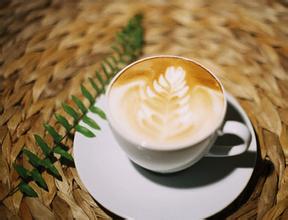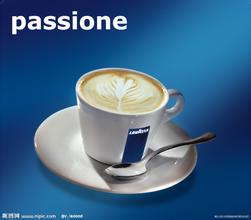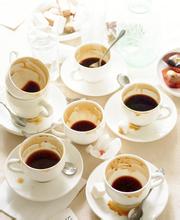Jamaican Coffee Manor with long-lasting Fruit Flavor characteristics of Yinshan Manor
One might ask, what is so special about Jamaican Blue Mountain Coffee? The answer is everything about it. The real Blue Mountain Coffee is one of the most advantageous coffee growing conditions in the world. The weather, geological structure and topography of Jamaica provide a unique ideal place. The designated Jamaican Blue Mountain Coffee can only be grown in the Blue Mountain area, north-east of the island of Jamaica in Kingston. Coffee grows on a mountain with a maximum height of 1800 meters (almost 6000 feet), which is already quite high for small-grain coffee, and the mountains are very uneven and the process of harvesting is very difficult (coffee harvesting is almost entirely female). The tree is mainly small grain "Geisha High Bred" type. Seeds from these trees have been exported to other countries, such as Hawaii, Kenya, Papua New Guinea and elsewhere, but they are no longer able to create the flavor of Blue Mountain coffee beans anywhere. In the steep and high-altitude mountains, careful farming and harvesting, all Jamaican Blue Mountain coffee is ground, tasted and distributed by the Jamaican Industry Association. The coffee in the cup tastes very clean, and it is one of the sweetest coffee in the world. This taste has been described by Jim Reynolds in Peet coffee and tea: "the best example of Jamaican Blue Mountain Coffee is its aroma, smoothness and richness." it makes me feel like a gem. It's as precious as a gem. It's complex, but very mild, it's sweet, it's very mellow. You have to taste it in order to know what I'm talking about. Unique growth conditions and careful production make Jamaican Blue Mountain Coffee very famous. Jamaica is one of the small coffee producing regions in the world, with an annual harvest of about 40000 bags-60 kg / sack (Jamaican Blue Mountain coffee is actually shipped away in 70 kg barrels, they are the last countries to this day still use this traditional packaging method, but they produce 60 kg/ sacks, as that is the international standard for measuring coffee production). Compare Brazil, the world's largest exporter of coffee, with an annual production of 30000000 bags to 60 kg per sack. The Japanese have invested heavily in the Blue Mountain Coffee breeding area in Jamaica and have won 90% of the annual production. The rest of the world must bid for the remaining 10%, or 3500 barrels. The real Blue Mountain Coffee has a unique taste, making it the most expensive coffee in the world. Its demand is very high, so some of the market is in short supply. The unique growth conditions give birth to the unique flavor of Blue Mountain Coffee and make it one of the "gourmet Coffee". 100% pure blue mountain coffee in the world refers to a specific range of blue mountain coffee in eastern Jamaica. every step during its planting and processing has gone through the strict quality management of the Jamaica Coffee Industry Bureau. can it be proved to be "pure Jamaican Blue Mountain Coffee" the annual harvest period of Jamaican Blue Mountain coffee is from June to November, usually by hand, and then washed and peeled after picking. Fermentation, dehydration, sun drying, shelling, baking and other processes, can get a blue mountain coffee ripe beans. In the process of raw bean processing, there are special personnel responsible for quality supervision in each step. For the very precious Blue Mountain Coffee, the packing and transportation mode adopted by the Jamaican government is also different. Unlike other coffees, Blue Mountain Coffee is not packed and transported in cloth bags at 60kg / bag, but in wooden barrels at the standard of 70kg / barrel. Jamaica is also the last country to still transport coffee in traditional wooden barrels. Jamaican Blue Mountain coffee beans must obtain a certificate of quality recognition issued by the Jamaican Coffee Industry Committee, which is the only body in Jamaica authorized to issue such a certificate. And each batch of export will have special quality supervision experts responsible for sampling, baking, grinding and brewing coffee, and finally make a judgment on whether to meet the standard. Because of its high price, Blue Mountain Coffee has a relatively fixed consumer group, and its market is mainly concentrated in Japan, followed by some European and American countries. Coffee beans are full in shape and slightly larger than ordinary beans. Its taste is very subtle, sour, fragrant, mellow, sweetness is uniform and strong, slightly bitter, harmonious taste, excellent flavor, suitable for individual coffee. It uses medium roasting (Medium Roast) to maximize the original taste of the coffee and enhance its aftertaste. In recent years, with the improvement of domestic coffee consumption, a large number of cafes have begun to supply "Blue Mountain Coffee", and its price is often only a fraction or a tenth of that of authentic Blue Mountain coffee. In 2005, under the guidance of Taiwan coffee manufacturers, a large number of domestic media began to pay attention to and report the authenticity of Blue Mountain Coffee. So far, authentic Blue Mountain coffee is still out of reach of most domestic consumers because of its price and supply in the mainland market. Blue Mountain Coffee can maintain its top status today, which is closely related to the local management policy. In 1932, Jamaica reduced the island's dependence on sugar exports through policies to encourage coffee production. Unlike most coffee-producing countries, the local government does not plant a large number of high-quality and poor-quality coffee in order to increase the output, but prefer to sacrifice the output to ensure the quality. Therefore, Jamaica is one of the countries with low coffee production in the world. Brazil, the world's largest coffee exporter, produces 30 million bags of coffee a year, while Blue Mountain Coffee produces only about 40, 000 bags a year.

Important Notice :
前街咖啡 FrontStreet Coffee has moved to new addredd:
FrontStreet Coffee Address: 315,Donghua East Road,GuangZhou
Tel:020 38364473
- Prev

An introduction to the flavor and taste of the coffee producing area of Atlanta Manor, Jamaica.
By 1981, about 1500 hectares of land in Jamaica had been reclaimed for coffee cultivation, followed by investment in another 6000 hectares of coffee land. In fact, today's Blue Mountain area is a small area with a planting area of only 6000 hectares, and not all coffee marked with the words Blue Mountain can be grown there. Another 12000 hectares of land is used to grow the other two types of coffee (
- Next

The rich flavor of Jamaican Coffee Manor introduces the flavor and taste of Cliff Manor
90% of the post-harvest Blue Mountain coffee is bought by the Japanese. In 1992, Jamaica sold 688 tons of Blue Mountain coffee to Japan, 75 tons to the United States and 59 tons to Britain. Now that the rest of the world can only get 10% of the output of Blue Mountain coffee, regardless of the price, blue mountain coffee is always in short supply. In England, for many years, the Langford Brothers brothers
Related
- Does Rose Summer choose Blue, Green or Red? Detailed explanation of Rose Summer Coffee plots and Classification in Panamanian Jade Manor
- What is the difference between the origin, producing area, processing plant, cooperative and manor of coffee beans?
- How fine does the espresso powder fit? how to grind the espresso?
- Sca coffee roasting degree color card coffee roasting degree 8 roasting color values what do you mean?
- The practice of lattes: how to make lattes at home
- Introduction to Indonesian Fine Coffee beans-- Java Coffee producing area of Indonesian Arabica Coffee
- How much will the flavor of light and medium roasted rose summer be expressed? What baking level is rose summer suitable for?
- Introduction to the characteristics of washing, sun-drying or wet-planing coffee commonly used in Mantenin, Indonesia
- Price characteristics of Arabica Coffee Bean Starbucks introduction to Manning Coffee Bean Taste producing area Variety Manor
- What is the authentic Yega flavor? What are the flavor characteristics of the really excellent Yejasuffi coffee beans?

